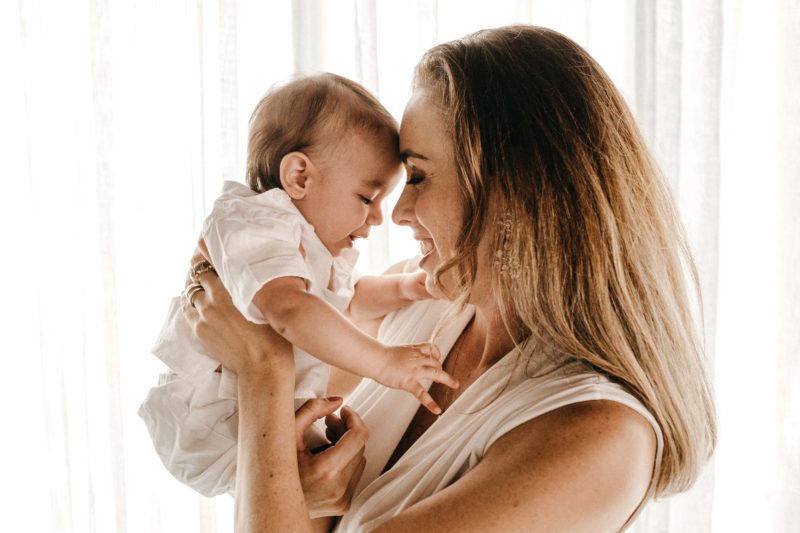
When you think about having a baby, you consider all the joys it can bring. Your life will be filled with the rewards of bringing life into this world. But the first six months of a baby’s life are critical for development and health.
Here is what you can expect during the first six months after having a baby, and remember it’s not just the baby who may benefit from support after birth, mom’s often turn to a postpartum waist trainer to aid their recovery.
Breastfeeding
As recommended by the CDC, moms should breastfeed their children for the first six months of their life. This provides all of the necessary nutrients they need in the correct proportions. It also can help protect the baby from various illnesses, infections, allergies, obesity, and diabetes.
Unfortunately, many people struggle with breastfeeding, whether that’s getting the child to latch or creating enough milk for the baby. Working with a lactation specialist can provide you with the support you need during one of the most important mother-child connection moments you’ll have throughout your baby’s first six months.
Developing Motor Skills
Motor skills are what allow you to make critical movements for your body to perform certain tasks. During the first six months, your baby will begin to develop motor skills such as lifting their head, propping themselves up, and eventually sitting up on their own.
As you know, a baby’s neck and head are very fragile when they’re born. You’ll need to spend time building these muscles. This is where you’ll hear the term “tummy time” used a LOT. The Lovevery Baby Gym is perfect for helping your baby develop their gross and fine motor skills for the first 6 months of their life.
Don’t be surprised if by the time they’re six months old that they can roll from their back to their stomach on their own. These are important skills to develop as they learn to navigate the world through their own body.

Babies Sleep A Lot
According to the National Sleep Foundation, newborns through three months will sleep around 14 to 17 hours over a twenty-four-hour period. Your baby could even sleep up to nineteen hours a day while waking to eat every two or three hours.
By the time your baby is between four to eleven months, they will need to sleep between 12 and 15 hours per day. It’s important to help them build sleep patterns by getting your child on a regular schedule. This might seem difficult at first, but patience and repetition are key.
Building Their Senses
As adults, we take our senses for granted. As newborn babies, they’re unable to decipher anything as their senses are still developing. That’s not to say they aren’t born with all of their senses, but understanding them is entirely different.
For instance, a baby’s sense of touch grows as nerve endings are developing. This starts happening at around eight weeks, and explains why babies love to put things in their mouth or suck on their thumb.
It’s much more sensitive around the gums rather than in their hands as they begin to feel things through their sense of touch for the very first time.

Eating Habits Will Change
Since you’ve been breastfeeding for a long time, by six months, you may start to plan ahead for the process of weaning your baby. You can also consider introducing solid foods soon such as pureed fruits and vegetables.
It’s important that as their eating habits change, you take the process slowly. Only introduce one type of food at a time and wait a few days. This is to make sure you can monitor their reaction to the food.
If you notice there is any vomiting, rash, or diarrhea, it may be a sign that they aren’t able to digest the food properly or may have some type of allergy. Always make sure to consult with your pediatrician if you’re unsure about your baby’s eating habits or notice unusual reactions to certain foods.
Communication
This is one of the most fun experiences you’ll have with your child as they begin to understand how to communicate. Babies are like sponges and will repeat the habits and noises they see or hear.
By six months old, your child should be making noises as they try to decipher words. They should also be smiling and laughing while they learn to recognize the world around them.
They don’t need to be saying full-on words yet, but it’s important that if your child isn’t responding with any type of communication, you consult with a pediatrician. This is to rule out any development issues that may be happening.

The first six months of your newborn baby’s life are critical to their overall development. It’s also the most exciting time as you bond with your child to help them start to develop the muscles, motor skills, and communication to start to comprehend and navigate the great big world around them.
And don’t forget, all new moms need help during this time, too. Make sure to work with different specialists, such as a lactation consultant or your pediatrician, if you’re concerned about your child’s development.



